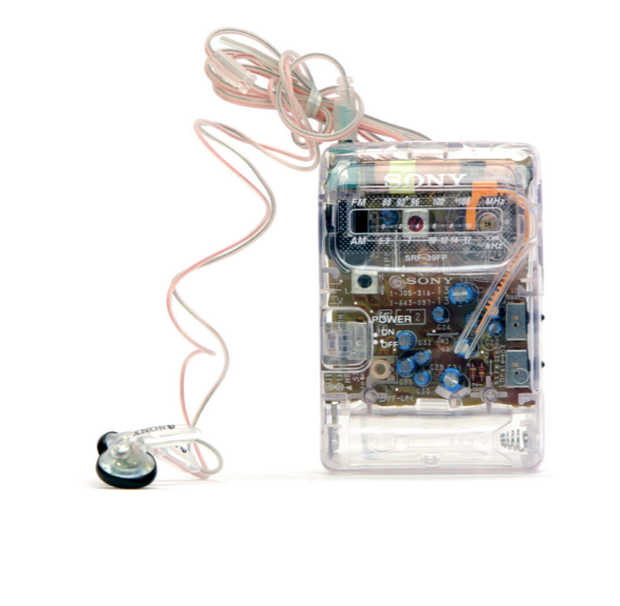Apart from a shiv, the thing I’d most like to have if I were incarcerated would be a Sony SRF-39FP, the most popular radio in the big house. It’s manufactured specifically for inmates, with a transparent case to prevent its use as a container for contraband. From “The iPod of Prison,” by Joshua Hunt at the New Yorker blog:
“The pocket analog radio, known by the bland model number SRF-39FP, is a Sony ‘ultralight’ model manufactured for prisons. Its clear housing is meant to prevent inmates from using it to smuggle contraband, and, at under thirty dollars, it is the most affordable Sony radio on the prison market.
That market consists of commissaries, which were established by the Department of Justice in 1930 to provide prisoners with items not supplied by their institutions; by offering a selection of shampoos and soaps, they shifted personal hygiene costs to inmates, while distractions like playing cards eased tensions among the nation’s growing prison population. More than half a million inmates each week shop at commissaries stocked by the Keefe Group, a privately held company that sells items to the Federal Bureau of Prisons, and twelve out of fourteen privately managed state departments of corrections. A sample commissary order form lists items like an I.B.M. typewriter ribbon, hair dye, RC Cola, Sensodyne toothpaste, chili-garlic sauce, Koss CL-20 headphones, and a ‘Sony Radio.’
Commissaries often carry other, bargain-brand radios, but according to former inmates and employees of the Bureau of Prisons and the Keefe Group, who spoke on the condition of anonymity, America’s federal prisoners are most likely to own a Sony. Melissa Dolan, a Sony spokesperson, confirmed in an e-mail that selling portable radios in American prisons has long been a ‘stable business’ that represents ‘sizable’ sales for the company. Of the models available, the SRF-39FP remains an undisputed classic, still found on commissary lists an impressive fifteen years after its initial release, making it nearly as common behind prison walls as Apple’s iPod once was outside of them, despite competition from newer devices like digital radios and MP3 players.”

